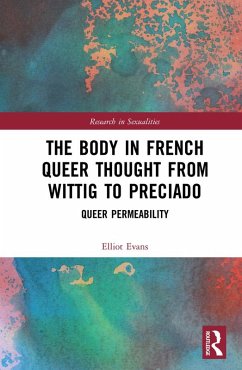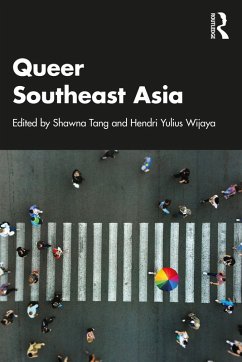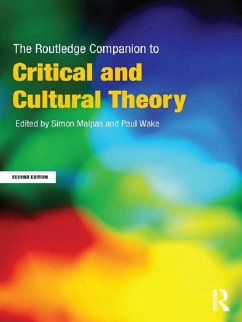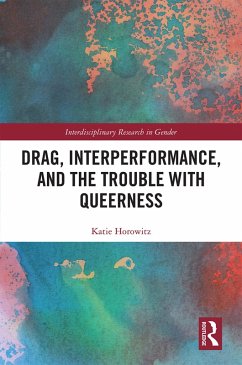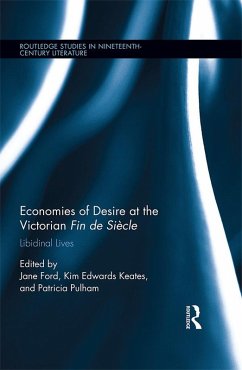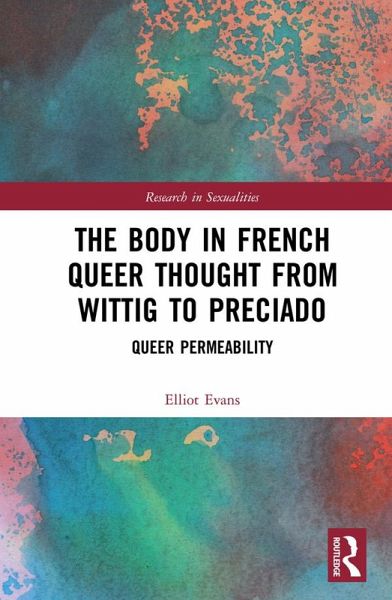
The Body in French Queer Thought from Wittig to Preciado (eBook, PDF)
Queer Permeability
Versandkostenfrei!
Sofort per Download lieferbar
42,95 €
inkl. MwSt.
Weitere Ausgaben:

PAYBACK Punkte
21 °P sammeln!
The Body in French Queer Thought from Wittig to Preciado: Queer Permeability identifies a common concern in French queer works for the materiality of the body, arguing for a return to the body as fundamental to queer thought and politics, from HIV onwards.The emergence of queer theory in France offers an opportunity to re-evaluate the state of queer thought more widely: what matters to queer theory today? The energy of queer thinking in France - grounded in activist groups and galvanised by recent hostility towards same-sex marriage and gay parenting - has reignited queer debates. Examining Pa...
The Body in French Queer Thought from Wittig to Preciado: Queer Permeability identifies a common concern in French queer works for the materiality of the body, arguing for a return to the body as fundamental to queer thought and politics, from HIV onwards.
The emergence of queer theory in France offers an opportunity to re-evaluate the state of queer thought more widely: what matters to queer theory today? The energy of queer thinking in France - grounded in activist groups and galvanised by recent hostility towards same-sex marriage and gay parenting - has reignited queer debates. Examining Paul B. Preciado's experimentation with theory and pharmaceutical testosterone; Monique Wittig's exploration of the body through radically innovative language; and, finally, the surgical performances of French artist ORLAN's 'Art Charnel', this book asks how we are able to account for the material body in philosophy, literature, and visual image.
This is an important work for academics and students in French studies, in Anglophone queer studies, gender and sexuality studies and transgender studies, and will have significant interest for specialists of cultural translation and visual art and culture.
The emergence of queer theory in France offers an opportunity to re-evaluate the state of queer thought more widely: what matters to queer theory today? The energy of queer thinking in France - grounded in activist groups and galvanised by recent hostility towards same-sex marriage and gay parenting - has reignited queer debates. Examining Paul B. Preciado's experimentation with theory and pharmaceutical testosterone; Monique Wittig's exploration of the body through radically innovative language; and, finally, the surgical performances of French artist ORLAN's 'Art Charnel', this book asks how we are able to account for the material body in philosophy, literature, and visual image.
This is an important work for academics and students in French studies, in Anglophone queer studies, gender and sexuality studies and transgender studies, and will have significant interest for specialists of cultural translation and visual art and culture.
Dieser Download kann aus rechtlichen Gründen nur mit Rechnungsadresse in A, B, BG, CY, CZ, D, DK, EW, E, FIN, F, GR, HR, H, IRL, I, LT, L, LR, M, NL, PL, P, R, S, SLO, SK ausgeliefert werden.




